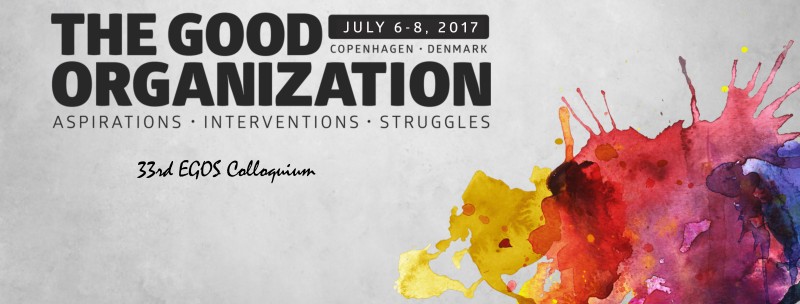Sub-theme 64: Activity Theory and Organizations
Call for Papers
Cultural-Historical Activity Theory (CHAT), rooted in the legacy of Vygotsky, Leont’ev and Luria, is a multidisciplinary
theory, which has gained increasing popularity and relevance among researchers in the field of organization studies (Adler,
2005; Blackler, 2009). CHAT offers lenses and tools for researchers and practitioners to analyze work and to become involved
in dialogical learning and change processes during which dysfunctional power structures are challenged (Blackler, 2009; Engeström,
2011). CHAT provides analytical, conceptual tools, such as models of activity systems, concepts of contradiction and zones
of proximal development to examine organizations as designed by human beings (Engeström & Sannino, 2011). In this framework,
the endresults of learning are not predetermined by the interventionists and the outcomes are designed by the participants
as they work out expansive solutions to the developmental contradictions in their activity systems (Virkkunen & Newnham,
2013).
CHAT has proven to be a useful theory, for example in the following areas of organization studies:
- Strategic management, practices of strategy making
- Organizational learning and competencies
- Organizational change management and knowledge management
CHAT includes an interventionist methodology for enhancing reflection of
struggles, competing interests and contradictions in collective activities and views them as drivers for change and learning
in organizations (Engeström, 2011). The methodology has various applications in which theory and practice intertwine, such
as the Change Laboratory method and the Clinic of Activity. The use of CHAT in the study of organizations has, however, not
yet deeply anchored in discussions within organization studies. The aim of this sub-theme is to bring together scholars using
activity-theoretical frameworks and to develop and cultivate the use of CHAT in organization studies further.
In this sub-theme we identify a range of themes concerning activity theory and organizations. We welcome papers examining
themes such as:
- Participatory interventions for overcoming struggles in organizations and workplaces
- Manifestations of contradictions and power and their resolutions in organizational interventions
- Expansive learning and concept formation in and between organizations
- Multivoicedness and agency in organizational transformations
- Organizational boundary crossing and knotworking
- Tool constellations and their roles in interventions and in promoting sustainability
We also invite contributions that deal with other, related themes and appreciate papers establishing a dialogue between
CHAT and other practice-based theories (Miettinen, Samra-Fredericks & Yanow, 2009). We will devote one of the sessions
of our sub-theme to dialogue between actor-network theory, critical realism, and CHAT. We will invite a speaker representing
actor-network theory, a speaker representing critical realism, and a speaker representing CHAT. Each speaker will have a talk
about key commonalities and differences between the three approaches. After that, there will be a general discussion on the
potentials and challenges of dialogue and collaboration between the approaches. We are also interested in theoretical papers
taking a critical stance towards CHAT as a theory. We welcome innovative, theoretical and empirical work as well as both micro-
and macro-level analysis. We especially appreciate empirical papers using CHAT as a methodological tool in the study of organizations.
References
- Adler, P.S. (2005): “The Evolving Object of Software Development.” Organization, 12 (3), 401–436.
- Blackler, F. (2009): “Cultural-Historical Activity Theory and Organization Studies.” In: A. Sannino, H. Daniels & K.D. Gutiérrez (eds.): Learning and Expanding with Activity Theory. Cambridge: Cambridge University Press, 19–39.
- Engeström, Y. (2011): “From design experiments to formative interventions.” Theory and Psychology, 21 (5), 598–628.
- Engeström, Y., & Sannino, A. (2011): “Discursive manifestations of contradictions in organizational change efforts: a methodological framework.” Journal of Organizational Change Management, 24 (3), 368–387.
- Miettinen, R., Samra-Fredericks, D., & Yanow, D. (2009): “Re-Turn to Practice: An Introductory Essay.” Organization Studies, 30 (12), 1309–1327.
- Virkkunen, J., & Newnham, D.S. (2013): The Change Laboratory. A Tool for Collaborative Development of Work and Education. Rotterdam: Sense Publishers.


